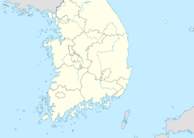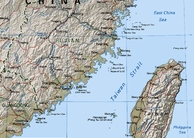|
International Affairs
Page 20/27 | Showing results 286 - 300 of 393
2010, Vol. 4 No. 1
Drawing from the concept of national identity in the Constructivist School of International Relations, this paper sheds light on the interaction between identity politics and pan-Asian regionalist vision in South Korea today by examining how competing... Read Article »
2010, Vol. 2 No. 10
The Liberal Democratic Party’s largely uninterrupted dominance of Japanese politics must be ascribed to processes which transverse electoral systems and periods of economic vigour. This essay proposes that clientelistic behaviour within the... Read Article »
2010, Vol. 2 No. 09
Since the collapse of the Soviet Empire in 1991, the world has gone through a final massive wave of democratization in Europe, which was highlighted by the fact that many countries finally gained long sought independence and autonomy. Sudden change... Read Article »
2010, Vol. 2 No. 09
A country of approximately 37 million people, Kenya has struggled to build a health system that can effectively deliver quality health services to its population. Access to health care varies widely throughout the country and is determined on numerous... Read Article »
2010, Vol. 2 No. 09
Postcolonial Kenya has seen a significant amount of development, both politically and economically, since its independence in 1963. Starting with the presidency of Jomo Kenyatta, the nation prospered -- experiencing economic growth of at least 5... Read Article »
2010, Vol. 2 No. 07
The United States presidency is a complex role, encompassing both domestic and foreign policy responsibilities. As a major world power, the United States has a large role in the realm of foreign policy, and it is the duty of the president to assume... Read Article »
2010, Vol. 2 No. 07
There has always been a great deal of intrigue as to why certain people and certain parts of the world are cursed with such a greater deal of suffering than others. Over time certain societies have developed through a series of phases of modernity... Read Article »
2010, Vol. 2 No. 06
In 2005, during a period of heightened tensions between China and Taiwan and with the United States deeply embroiled in two major wars in Iraq and Afghanistan, the leading authority on East Asian security within the National Security Council nevertheless... Read Article »
2010, Vol. 2 No. 06
If Japan was a person, it would be an exceptionally wealthy yet rapidly aging individual, who, for two decades, had been struck by illness. One might therefore find it unexpected for this person to be busily working on constructing the new face... Read Article »
2010, Vol. 2 No. 06
"When can we expect a pro-Western, pro-business government in Iran?" asks a US government official in the quasi-fictitious film Syriana. Today, it is highly probable that the same question is still being asked by anxious diplomats the world over... Read Article »
2010, Vol. 2 No. 06
Conflict management in the Horn of Africa has been relatively unsuccessful. Foreign colonialism created boundaries that have yet to be resolved, and newly independent nations engaged in conflicts responsible for human rights atrocities, child conscription... Read Article »
2010, Vol. 2 No. 06
Martin Luther King, Jr. once wrote that “to ignore evil is to become an accomplice to it.”[1] Although this statement was meant towards the civil rights movement, the idea equally applies in other instances, especially in times... Read Article »
2010, Vol. 2 No. 05
Power is the ability to achieve one’s purposes or goals.[1] Through the scholarship of Joseph Nye, the concept of power occupies two distinct spheres: ‘hard’ and ‘soft’. The former purports to have a coercive function... Read Article »
2010, Vol. 2 No. 05
There is a growing consensus that the prevalence of a large youth population is not conducive to peace and that such a ‘youth bulge’ can even increase the risk of civil conflict and political violence.[1] Richard Cincotta and Elizabeth... Read Article »
2010, Vol. 2 No. 05
By the nineteenth and early-twentieth centuries, a large part of the Muslim world had begun to lose much of its cultural and political sovereignty to Christian occupiers from Europe. This came as a result of European trade missions during earlier... Read Article »

Expedited Article Review
Submit an article and get a decision fast.
If you need a fast decision, INQUIRIES Journal offers expedited processing of your submission for a small fee. Depending on the expedited review option you choose, you can receive a decision in as few as 5-days.
In addition to a shorter review period, the fee supports the journal's continued operation and open-access publishing model. Standard submissions are always free. Submit Now » - Submit an Article to Inquiries Journal -
|









